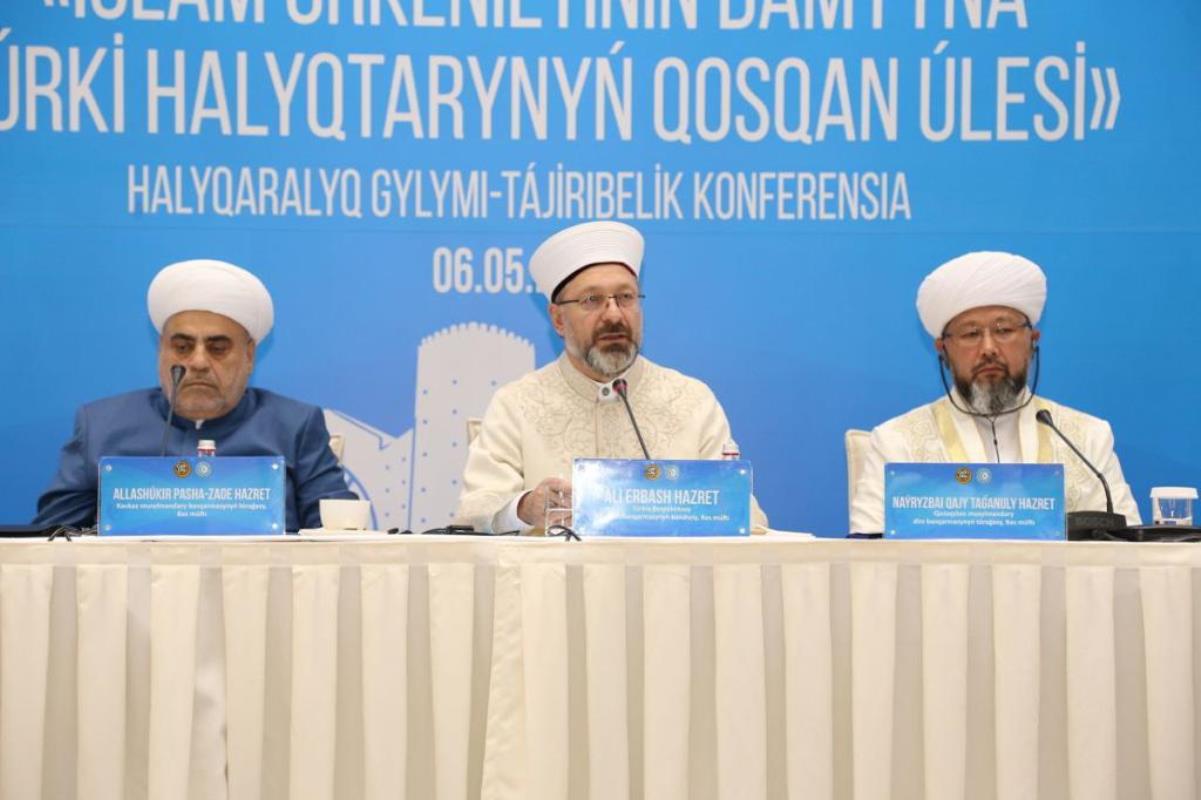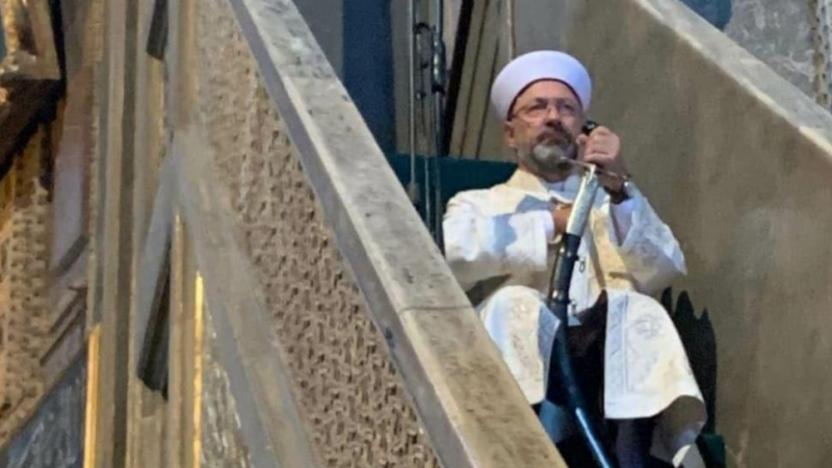Levent Kenez/Stockholm
The head of Turkey’s Religious Affairs Directorate (Diyanet) warned his colleagues about opponents of the Turkish government at a meeting on May 6 in Kazakhstan attended by muftis from Turkic states, indirectly threatening to cut them off from Turkey’s financial support.
Speaking at the meeting of the Union of Muftis of Turkic Peoples in Turkestan, a city in Kazakhstan, Diyanet President Ali Erbaş targeted the faith-based Gülen movement, whose members have been the victims of severe human rights violations in Turkey because they are opposed to Turkish President Recep Tayyip Erdoğan.

Describing the Gülen movement as a group acting on behalf of imperialists, Erbaş said, “The existence of individuals and institutions that do not distance themselves from this structure and that cannot express their stance clearly draws attention.”
Nordic Monitor has learned that Erbaş specifically meant authorities in Kyrgyzstan and Kazakhstan without giving names. These two countries have already nationalized the educational institutions affiliated with the Gülen movement as a result of persistent pressure from Turkey. However, Turkey also demands the deportation of its citizens affiliated with the movement, a common policy in line with its own narrative on Gülenists.
“I must clearly state that it is not possible for us to work together with any person or institution acting together with FETÖ [a derogatory term coined by the Erdoğan government to refer to the Gülen movement as a terrorist organization]. This is Turkey’s red line. If tolerating this organization is due to ignorance, it is negligence. If done consciously, it is betrayal,” Erbaş added.
Erbaş was referring to donations provided by the Diyanet’s foundation — Türkiye Diyanet Vakfı (TDV) — to Turkic countries.

The foundation, with sizable assets and an annual budget of well over a billion Turkish lira, has been transformed into an instrument for projecting the political Islamist ideology abroad. The Erdoğan government tapped the organization to build mosques and religious schools overseas and provide scholarships to thousands of foreign students.
The Erdoğan government also uses the TDV to construct mosques in other countries to create hubs for spreading its ideology and building communities that will help the Turkish government’s policies abroad. It allocated TL 85 million in 2020 for construction in foreign countries. Mosques recently built with millions of euros of TDV funding are located in Kosovo, Albania, Russia, Bosnia and Herzegovina, and Kyrgyzstan. Some of the mosques were inaugurated by Erdoğan himself.
According to the most recently disclosed financial data, the TDV had 1.3 billion Turkish lira in revenue in 2020, the bulk of which came from donations, and spent TL 853.6 million the same year to fund projects. The value of its assets, mostly in the form of properties owned by holding companies and shares in commercial businesses, was never declared, but it was estimated to be a multi-billion-dollar figure.
The Imam Serahsi Mosque, built by the TDV in the Kyrgyz capital of Bishkek, is currently the largest mosque in Central Asia. The mosque was opened for service in 2018 with a ceremony attended by Erdoğan.
This is not the first time Turkey has put pressure on religious institutions in return for the aid it has provided. Turkish Ambassador to Kyrgyzstan Cengiz Kamil Fırat, who protested the presence of a former school principal allegedly affiliated with the Gülen movement at an iftar dinner organized by the mufti of Bishkek in 2019, walked out of the event, shouting, “We have a mosque built here for $35 million, and you sit us at the same table as terrorists.”

The Gülen movement, which started its activities in Central Asia, with which Turkey has historical ties, following the dissolution of the Soviet Union in 1991, is a well-known group in the region. Characterizing the Gülen movement as a terrorist organization in a region where there are tens of thousands of graduates from universities and high schools run by the movement does not work for the Turkish government. However, as a result of pressure from Turkey, a large number of Turkish citizens affiliated with the movement had to leave and seek asylum in Western countries, particularly European Union members.
Hamidullah Öztürk, a theologian and former columnist for the now-closed Zaman daily, criticized Erbaş’s speech in Kazakhstan in a video on Twitter. Referring to Erbaş’s positive thoughts about the Gülen movement in the past, Öztürk emphasized that many theologians who had to flee Turkey are old friends of Erbaş.
In a report published in 2016, the Diyanet identified the Gülen movement as a seditious group that had deviated from Islam. It was reported in the press that the Diyanet staff who drafted the report did not want their names mentioned in connection with it. Fethullah Gülen, the movement’s spiritual leader and a former Diyanet imam, claims that the Religious Affairs Directorate has become a political organization and is committing a great sin.












